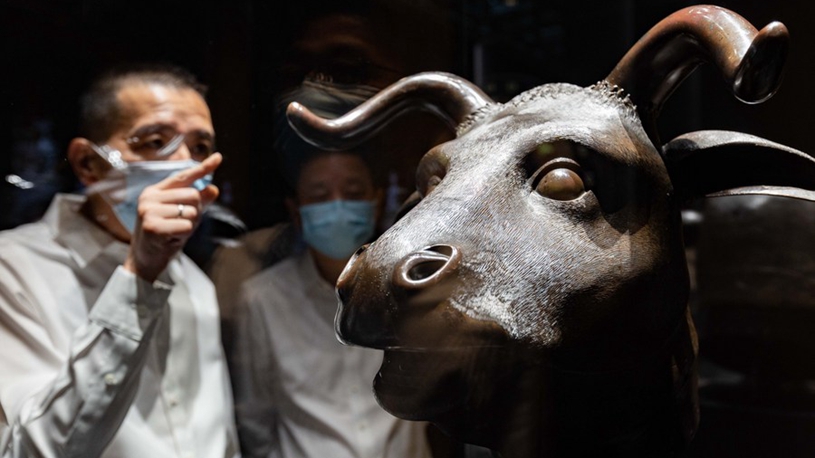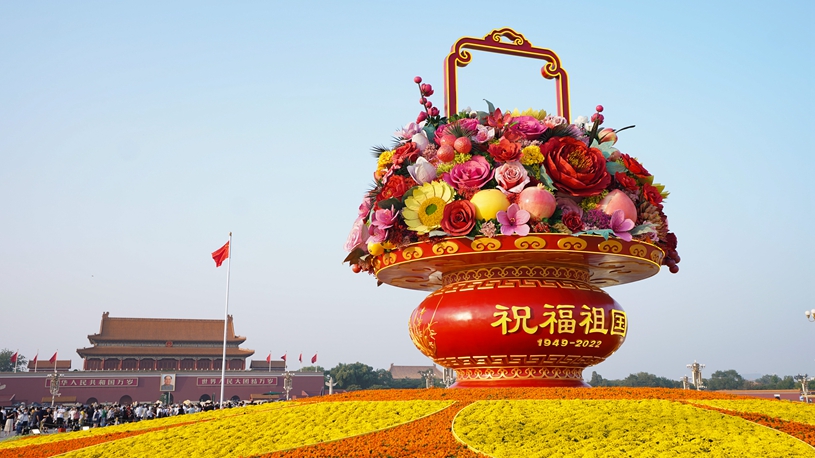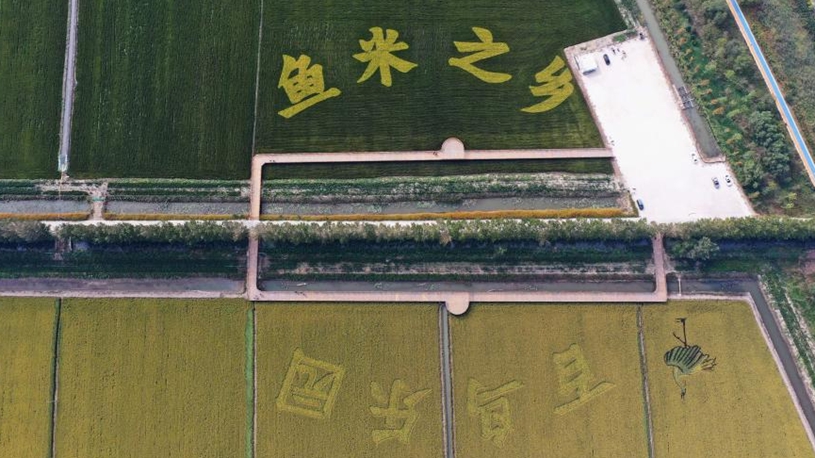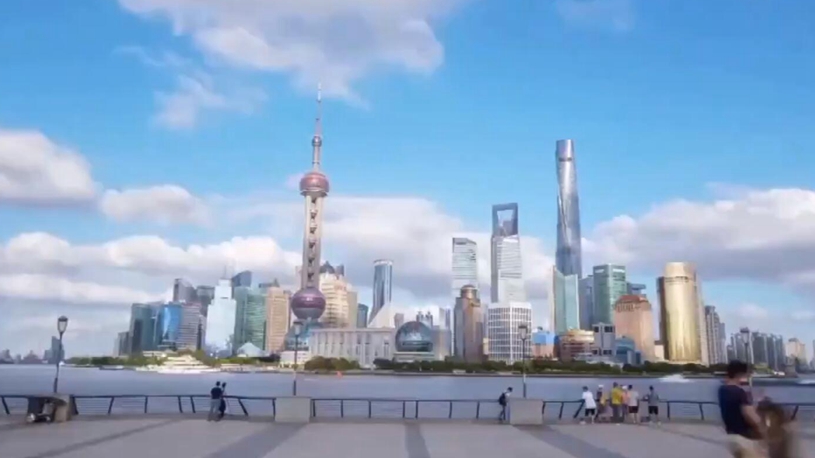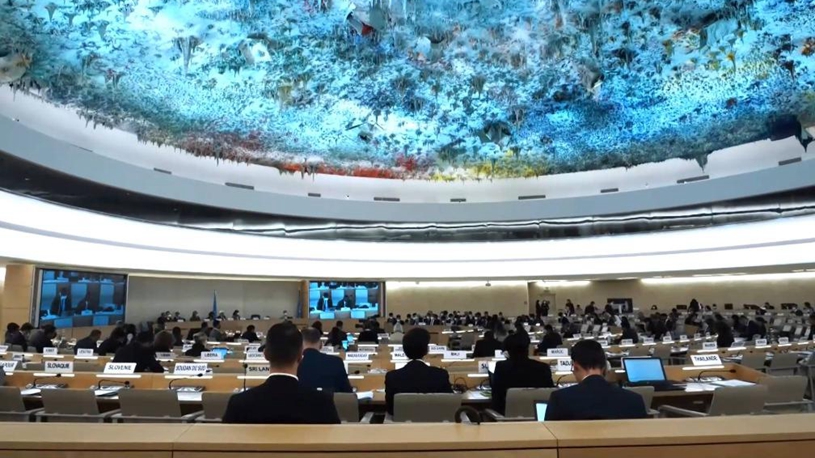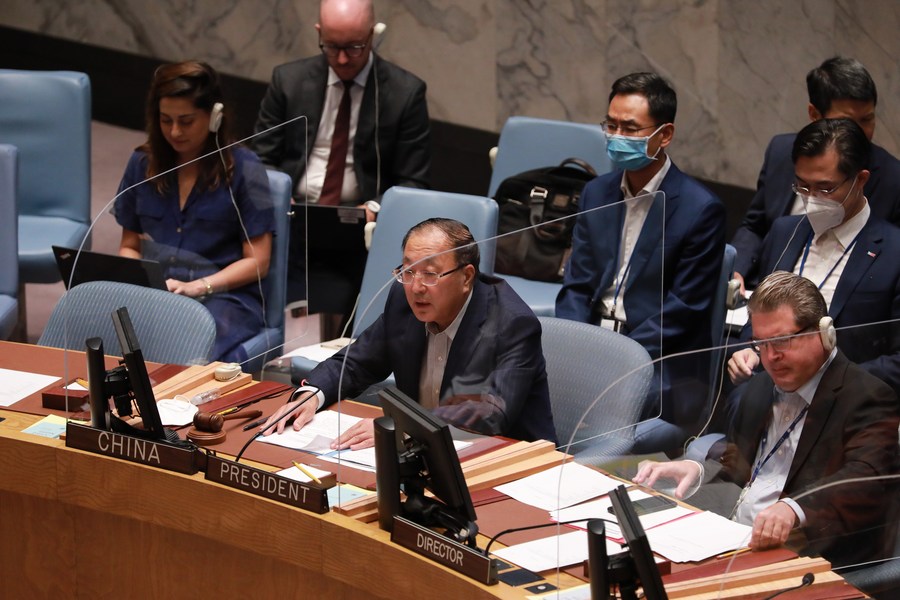
Zhang Jun (C), China's permanent representative to the United Nations, speaks at a UN Security Council meeting on the situation in the Middle East, including the Palestinian question, at the UN headquarters in New York, on Aug. 25, 2022. (Xinhua/Xie E)
"What is lacking in resolving the Palestinian question is not a grand plan, but good conscience to uphold justice," said Zhang Jun, China's permanent representative to the UN. "Whether the Security Council lives up to its responsibilities depends not on loud slogans, but on concrete actions."
UNITED NATIONS, Sept. 28 (Xinhua) -- No one has the right to veto on issues concerning the future and fate of the Palestinian people, said a Chinese envoy on Wednesday.
In his remarks at a Security Council meeting, Zhang Jun, China's permanent representative to the United Nations, stressed the importance of upholding fairness and justice on the Palestinian question.
"What is lacking in resolving the Palestinian question is not a grand plan, but good conscience to uphold justice," he said. "Whether the Security Council lives up to its responsibilities depends not on loud slogans, but on concrete actions."
The Security Council should perform its duties objectively and impartially in accordance with international consensus and promote the resumption of Palestinian-Israeli talks without delay, instead of waiting for the so-called conditions for dialogue to mature, said Zhang. "On issues concerning the future and fate of the Palestinian people, no one has the right to veto."
An early, comprehensive, just and lasting settlement of the Palestinian question remains the common expectation of the international community. The Security Council is duty-bound on the question of Palestine. It must take more vigorous actions to support the Palestinian people in restoring and exercising their inalienable rights and achieving lasting peace in the Middle East, he said.
A long-term solution to the Palestinian-Israeli issue must be based on the two-state solution. This is an international consensus and the bottom line of fairness and justice, which must be firmly adhered to, said Zhang.
China hopes that the parties concerned can translate political will into constructive policies and actions and make concrete efforts to realize the two-state solution on the basis of relevant UN resolutions, the land-for-peace principle, the Arab Peace Initiative, and other international consensus and norms, he said.

Mourners carry the body of a Palestinian man killed during clashes with Israeli soldiers in the West Bank city of Jenin, Sept. 28, 2022. (Photo by Ayman Nobani/Xinhua)
Israel and Palestine are neighbors that cannot relocate, and their security is interdependent and indivisible. If the security of one side is based on the insecurity of the other, the cycle of violence will continue, and security cannot be achieved, he warned.
The international community should attach equal importance to the security concerns of both sides, and encourage them to find the greatest common denominator and, through dialogue and cooperation, to achieve common security. At the same time, the occupying power should earnestly fulfill its obligations under international law to protect civilians in the occupied territory, said Zhang.
Settlement activities violate international law and the provisions of Security Council Resolution 2334. China urges Israel to immediately stop all settlement activities, he said.
China supports the just cause of the Palestinian people to restore their legitimate national rights, and supports the establishment of an independent Palestinian state with full sovereignty based on the 1967 borders with East Jerusalem as its capital. China is ready to work with all parties to push the Security Council to play its role to break the current stalemate and to transform the two-state solution from consensus into action and from vision into reality, so as to realize the peaceful coexistence of Palestine and Israel, to achieve harmonious coexistence between the Arab and Jewish peoples, and the lasting peace in the Middle East, he said. ■



